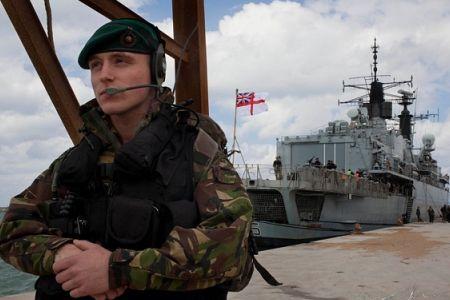As of midnight, Oct. 31, NATO and its partners in the U.N. Security Council have ceased operations in Libya against Gaddafi-loyal forces. With the death of Gaddafi and the liberation of Libya on Oct. 23, the Security Council has deemed operations unnecessary.
According to BBC, the halt came despite a request from Libya’s National Transitional Council for NATO to continue military action and give them time to assess the security needs of the nation.
NATO Secretary General Anders Fogh Rasmussen has said that he did not expect NATO to have a major role in post-war Libya.
“The job was done, there was no longer any air threat, or even serious military threat, from Gaddafi’s forces,” said Visiting Assistant Professor of Political Science Robert Duncan in agreement with the NATO decision.
During the seven-month campaign, NATO carried out close to 10,000 strike missions and about 26,000 sorties against Gaddafi’s military, BBC reports.
With the end of military operations, the U.N. has now turned its focus towards helping the new Libyan government stabilize and stopping the proliferation of arms left over from Gaddafi’s military arsenal.
U.S. Ambassador to the U.N. Susan Rice is currently urging Libya’s transitional government to “make the maximum effort to swiftly form an inclusive government that incorporates all aspects of Libyan society in which the rights of all Libyan people are fully and thoroughly respected,” according to Reuters.
Unfortunately, Libya faces several obstacles to forming a strong unified nation. Much like in Iraq, the majority of the Libyan populace is divided among various tribal groups.
There already have been several small scuffles between various militia groups within the rebel forces. According to Duncan, there is the potential that the nation might break out into tribal infighting that could escalate to a full civil war.
“If the leaders have the sense of responsibility to their people and to the other people in Libya, then there’s hope,” said Duncan, laying out his hopes for the future of Libya.
Another problem Libya faces is the spread of the weapons that were left over from Gaddafi’s military arsenal. Aside from guns and other standard weapons, there are also a number of unaccounted for Man-Portable Air Defense Systems, which are a major concern for the U.N., BBC reports.
Despite the suggestions from the U.N. to regather all the weapons, so far the transitional government has only made a small number of symbolic gestures. On top of that, their attempts to incorporate the rebels into the Libyan military have not progressed well.
According to the Washington Post, with the turbulent situation following Gaddafi’s death and the supply of weapons, both from the rebellion and from Gaddafi’s former arsenal, there is also a worry that the weakened borders could allow for groups like al-Qaeda to get ahold of the weapons and move them out of country.
All in all, even with the trouble that may be on the horizon for Libya, the end of U.N. operations marks, as U.K. Foreign Minister William Hague put it, “a milestone towards a peaceful, democratic future for Libya.”

